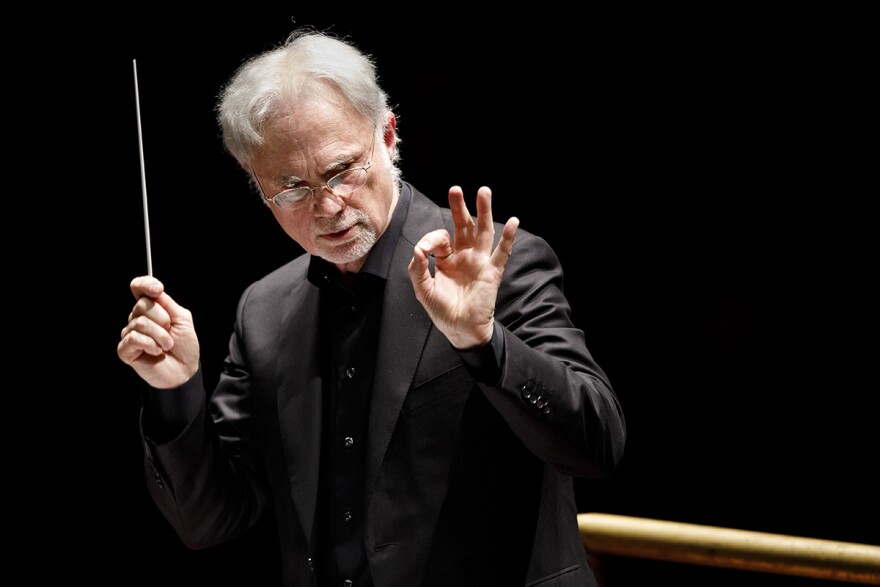Repulsed by the brutality against women in the story A Thousand and One Nights, composer John Adams created a dramatic symphony for violin and orchestra where the solo violin represents a modern, young woman who stands up to her oppressors. Here's the story behind Scheherazade.2.
Listen to violinist Leila Josefowicz play John Adams' Scheherazade.2, with the composer leading The Philadelphia Orchestra, Sunday, May 10th at 1 PM on WRTI 90.1 and Monday May 11th at 7 PM on our HD-2 channel.
While the title may bring to mind Rimsky-Korsakov's 1888 tone poem, Scheherazade.2 is not a reboot. Composer John Adams says, "My piece is completely different, but it was inspired by thinking about this tale of Scheherezade from the contemporary feminist point of view, that this is a terrible story."

In A Thousand and One Nights, Scheherazade survives only by telling her murderous husband a story each night with a cliffhanger ending. In Scheherazade.2, the solo violin part, written for Leila Josefowicz, represents a strong young heroine.
"I wrote it for Leila," says Adams, "because Leila has that kind of incredible power; she's a lovely person ... but there's just this fantastic sense of independence."
Leila Josefowicz, who has known Adams for years, grins. "He knows I've got some feisty stuff in me. So he knew that this was going to be a good character portrait for me to really get into a role."
She's now played the part over 60 times. And it's changed her, she says. "It's been a really transformative but very strengthening experience, for me, in the last few years of playing this. "
While there's no explicit narrative, each movement has a title which evokes images: the wise young woman, pursued by zealots, a love scene, a confrontation and escape and flight to sanctuary.
Josefowicz says it's a work that requires a certain conviction. "It really is about internal courage, strength, and vulnerablity; being in danger and fighting for what you believe."


